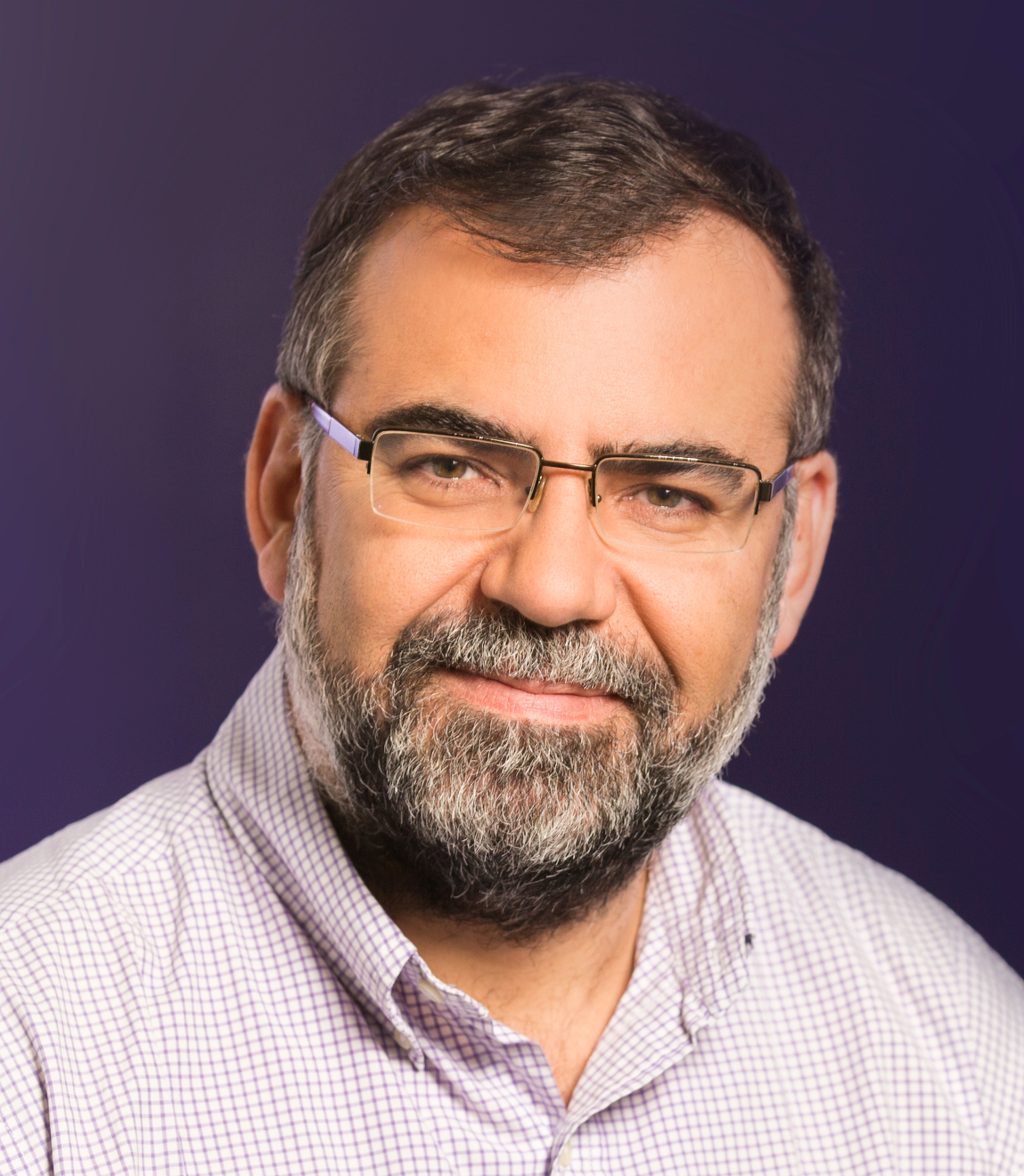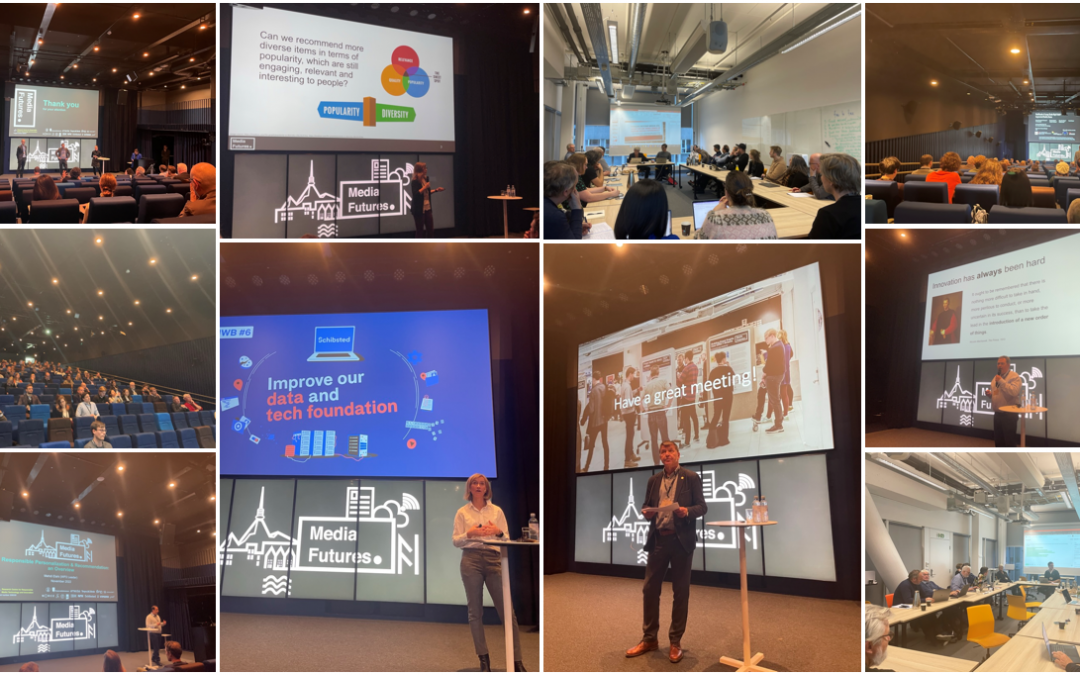MediaFutures is a centre for research-based innovation with the goal to develop responsible media technology, leveraging AI technology, for the media sector.
The centre is a consortium of the most important media players in Norway. The University of Bergen is the host of the centre. User partners include NRK and TV 2, the two main TV broadcasters in Norway, Schibsted, including Bergens Tidende (BT), and Amedia, the two largest news media houses in Scandinavia/Norway, as well as the world-renowned Norwegian media tech companies Vizrt, Highsoft and the global tech and media player IBM. The centre collaborates with renowned national research institutions including the University of Oslo, the University of Stavanger and NORCE, and works together with high-profile international research institutions.
This years Media Futures Annual Meeting will be held at November 16-17 at Media City Bergen, Norway, the 2023 Annual Meeting constitutes a forum for the exchange of scientific results and industry insights within the field of responsible media technology.
This year’s focus topic are Generative AI and the EU AI Act. In particular, we are interested in tackling questions related to as to what extent Generative AI and the EU AI Act will have an impact on the future of the media.
Following last year’s success, the 2023 Annual Meeting is expected once again to attract, and bring together Norwegian and international researchers, and industry practitioners with the intent of engaging in discussions on topics related to:
- AI Policy & Media Experiences
- AI Policy & Recommender Technology
- Generative AI & Content Production
- Generative AI & Media Interaction
- Generative AI & Large Language Models
Join us for inspirational keynote talks, prototype demonstrations, presentations held by our researchers, and industry partners, and poster session.
We are pleased to announce the following high-profile keynote speakers and experts in the field of AI: Ricardo Baeza-Yates and Esther Paniagua.
Check out the event page for more information.
KEYNOTES
Ricardo Baeza-Yates, Director of Research, Institute for Experiential AI, Northeastern University
Ricaro Baeza-Yates, born in Santiago, Chile, in 1961, is a world-renowned computer scientist and advocate for responsible AI. With an illustrious career spanning both academia and industry, Ricardo has made significant contributions to information retrieval, web search, and data science.
Currently serving as the Director of Research at the Institute for Experiential AI of Northeastern University’s Silicon Valley campus, Ricardo has held leadership roles at NTENT and Yahoo Labs, where he spearheaded advancements in web search technology. He is an ACM Fellow and IEEE Fellow, reflecting his international acclaim in the field of computer science.
Ricardo is the co-author of the influential book Modern Information Retreival and has published extensively on web bias, highlighting the ethical implications of AI. As a respected consultant, speaker, and co-founder of OptIA, an NGO for algorithmic transparency and inclusion, he continues to champion responsible AI practices.
We are honored to have Ricardo Baeza-Yates as a keynote speaker at our Annual Meeting.

Ricardo Baeza-Yates
Abstract
In the first part, to set the stage, we cover irresponsible AI: (1) discrimination (e.g., facial recognition, justice); (2) phrenology (e.g., biometric based predictions); (3) limitations (e.g., human incompetence, minimal adversarial AI) and (4) indiscriminate use of computing resources (e.g., large language models). These examples do have a personal bias but set the context for the second part where we address three challenges: (1) principles & governance, (2) regulation and (3) our cognitive biases. We finish discussing our responsible AI initiatives and the near future.
Esther Paniagua, Columnist and author specializing in science, technology, and cybersecurity.
Esther Paniagua is an award-winning tech & society journalist and author. Esther is one of Spain’s Linkedin Top Voices in Technology & Innovation. She has been honored as one of the “Top 100 Women Leaders of Spain” and as one of the “100 Most Creative People in Business” by Forbes. Her outstanding contributions to science, technology, and innovation journalism have earned her numerous awards.
Her latest book, Error 404. Are you ready for a world without the internet? (Debate, 2021), has garnered critical acclaim. Originally published in Spanish, it has been translated into German (Hoffman und Campe) and into Italian (Einaudi). “Error 404” will also be available in Polish, Greek, Croatian, and Romanian soon.
Esther is highly sought after as a speaker on topics related to digital governance, tech ethics, artificial intelligence, and cybersecurity. Additionally, Esther teaches AI Journalism at the Rey Juan Carlos University’s master’s degree program in Investigative Journalism, New Narratives, Data, Fact-checking, and Transparency.
We are thrilled to have Esther Paniagua as a keynote speaker at our Annual Meeting.

Esther Paniagua
Abstract
Thrive or die? The future of journalism in the AI age
Gradually and then suddenly, AI has erupted into the media landscape. As we navigate this transformative era, pressing questions arise: Can AI fulfill its promises of enhancing work efficiency, boosting audience engagement, generating substantial economic gains, and liberating journalists from repetitive tasks? Or does it pose a threat to the very fabric of journalism, within the backdrop of precariousness and content plundering?
This talk aims to unravel the complex web of AI’s -and more specifically LLM’s- impact on journalism, scaling automatic content generation and the proliferation of deepfakes in an already ‘infoxicated’ ecosystem. By exploring both utopian and dystopian scenarios, we seek to 1) provide insights into the potential futures that media and journalism face and 2) provide proposals, from an ethical and responsible media perspective, to ensure that Journalism thrives (and does not die) in the AI age.

